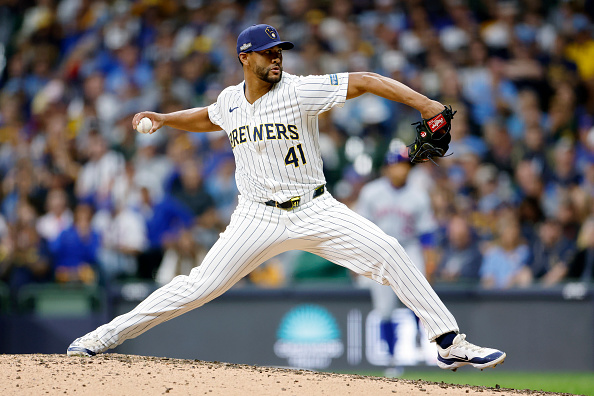The Phillies' offseason looks incomplete, but their two biggest moves may have already taken place with the one-year signings of outfielder Max Kepler and reliever Jordan Romano.
Speaking to reporters Friday evening after the Kepler contract became official, president of baseball operations Dave Dombrowski all but said that's it in terms of big free-agent deals.
"I would be surprised if we got into impactful free-agent type of signings from an offensive perspective," he said.
The Phillies have spent freely in recent offseasons, signing Bryce Harper and Trea Turner to contracts of $300 million or more, adding Kyle Schwarber and Nick Castellanos in the same offseason, extending Zack Wheeler, Aaron Nola and Cristopher Sanchez among other moves. Money hasn't been a major stumbling block and the payroll situation hasn't stopped the Phillies from improving every year since 2020, but it's a different story now.
Get top local stories in Philly delivered to you every morning. >Sign up for NBC Philadelphia's News Headlines newsletter.
The Phillies' payroll is now so high that they're essentially paying double for every player they sign. Kepler's one-year, $10 million contract actually costs them $19.25 million. This is because the Phils have already exceeded the third luxury tax threshold of $281 million and would pay a 92.5% penalty on every dollar of overages.
"Everybody we sign is a major penalty at this point," Dombrowski said. "You're cognizant of that."
Making the situation even tighter, the Phillies are at approximately $299M after the Kepler signing, just $2M below the fourth luxury tax threshold of $301M. The penalty for those overages is even harsher at 110%.
Philadelphia Phillies
Complete coverage of the Fightin' Phils and their MLB rivals from NBC Sports Philadelphia.
So, basically, if the Phillies wanted to sign a $20 million player right now, it would cost them $41.65 million.
"Well, I don't want to say it's a tight payroll in the sense that from an ownership perspective, I don't think I've ever gone to John (Middleton) on anything and him say no, don't do something," Dombrowski said. "But you still try to keep things in perspective, and I don't know what the exact payroll is but we're over $300 million in the threshold."
Kepler will play left field and the Phillies will keep Nick Castellanos in right. They will try to play Kepler every day, but he's never been a consistent hitter against lefties. It will be difficult to play him or Brandon Marsh every day and unwise to play them both against same-handed pitching. But an inexpensive, everyday outfielder isn't falling into their lap. As of now, the right-handed platoon partners of Kepler and Marsh would be Johan Rojas and Weston Wilson.
If that's the outfield mix, the Phillies will enter 2025 hoping a lot of things go right, and needing internal improvement from every hitter not named Harper or Schwarber.
"I think we're as good," Dombrowski said when asked if he felt this roster was better than in 2024. "I mean, we were pretty good last year at the end of the season. … I think we have a really good ballclub."
What's left?
The Phillies would like to add more pitching, particularly a starter capable of shifting to the bullpen if needed. The 2025 version of Spencer Turnbull, pretty much.
"Somebody that can be a starter slash reliever for us. That would be our main thing," Dombrowski said. "From a position player (standpoint), you never know what happens, but if we went into spring training with the club that we have right now, I'd feel very comfortable."
If the season started tomorrow, the Phillies would still be regarded as one of the top three or four teams in the National League along with the Dodgers, Braves and Mets. They failed in the NLDS but won 95 games and should make the playoffs again in 2025 even without a high-profile addition. The question is whether this roster can actually compete in October with those teams — which have either improved, gotten healthier or both — and the sort of hot hands that knocked them out of the playoffs two years in a row.



